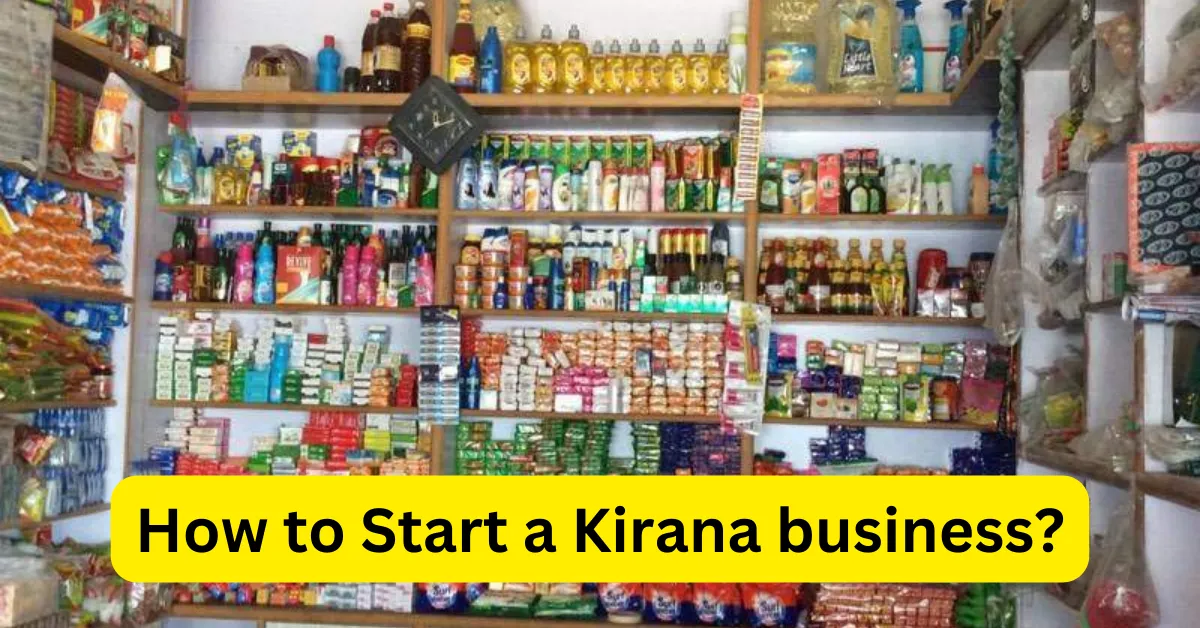
How to Start a Kirana business?
Complete guide on how to set up Kirana business
If you're planning to start a Kirana business in India then this guide is definitely going to help you with your research. From detailed kirana store business plan to steps to set up a kirana business, investment required, and profit margin, we have tried to cover all the finer details.
Kirana stores are the lifeline of every Indian locality and probably one of the only industries which do not require any fancy Master's degree from an expensive college. Knowledge, decent funding, and a drive to open your store are all you need to begin your journey in this humongous market.
A Kirana store business doesn't have a specific target audience but due to its heavy market presence, the competition mostly remains high. Venturing into traditional marketing methods won't work that effectively in 2020 hence, we are here to upgrade your expertise.
Before we begin discussing the steps to setup Kirana business let us understand-
What is a Kirana store?
A general store or market/shop for your everyday needs.
Mostly Kirana stores consist of daily needs and commonly used grocery items.
The store size of any shop depends on the kind of funds available to a local merchant.
The concept of Kirana stores exists only in the subcontinent of India.
The power of Kirana stores has stood the test of time smoothly for centuries, from monarchical ages to 2020.
Even during the pandemic, local Kirana stores have surpassed sales of many supermarkets and eCommerce websites.
There are over 15 million Kirana stores spread across every city, town, and village in India.
Why Kirana store business is worth investing?
Easy accessibility via locals and public transport.
Helps in maintaining long term and healthy relationships with regular customers.
Stocking only customer-relevant goods and commodities.
Attractive offers and credit account advantages.
Offering free home deliveries for no specific order limit.
How Do I Open A Kirana Store?
Check out these easy steps and effective methods on how to start Kirana store business.
Step 1- Have A Solid Business Plan
Any small or big business turns into a quick disaster without a proper business plan to execute.
Understand the financial status of the customers you're targeting and price your commodities accordingly. Start by analysing the preferences of your potential buyers.
By tracking their needs, likes, choices, preferences, and the frequency of purchasing you can easily figure out a selling strategy.
Step 2- Choose Your Locality
This is the most important part of starting a Kirana store. Your locality has the potential to make or break your business even before you begin.
Every area has a certain type of customer base, and its needs depend accordingly.
Tracking the age groups of people in your area of operation will help you be clear about the regular products that'll be in demand and kept in stock.
While if you open a store in a fancy posh locality or a youth-oriented area, your stock will consist of urban commodities and the latest stocks.
Step 3- Understand Your Customers
After you have finalised your locality for opening a Kirana store, the target shifts to understanding your daily or potential customers.
What do they prefer to purchase frequently?
Generally, your target market lies around 1 to 2 kilometres within your store location.
Expanding your market in newly developed areas of a city is a guaranteed success. You would be easily visible to the entire neighbourhood, and since being newly built might also bring the hopes of getting more space within affordable pricing.
Step 4- Calculate Your Investments
When you are zeroing in on location, commodities, suppliers, and staff do not forget to skip your investments on the same.
If you are opening a small scale Kirana store, chances are you would have to limit your choices by having lesser staff, and limited kirana store items.
Location, rent, inventories, along with other conveniences like standalone stores or a neatly stacked up air-conditioned supermarket would require varying amounts of investments.
Step 5- Digitise Your Kirana Store
With the dawn of the pandemic, the only stores that have managed to survive without incurring major losses are- Kirana stores for essential supplies and the pharmacies for emergency medications.
Most people who avoid going outside to maintain social distancing are opting for online shopping.
With every other item being available at the click of the screen, your store should be easily accessible as well.
Step 6- Obtain All Licenses/Permits
There are certain legal laws and licenses to open a grocery store in India that's mandatory to abide by. These permits include-
Shop & Establishment Registration
Food license
Entity Registration
You should also get your business registered under GST to avail various tax benefits and avoid reverse taxation.
If your annual turnover crosses over 20 lakhs then it becomes mandatory to obtain your GSTIN or your unique 15-digit identification number.
Step 7- The Weekend Gimmick
Most store owners have a fixed time during the weekdays, even though they live close-by.
Being flexible and staying open for longer hours, generates a sense of trust amongst nearby customers to get everything they need available at your store even after hours.
The weekend tactic is the one where you keep your stores open for weekends and festivals, that'll help you produce good profits.
Being open during odd timings helps in getting loyal consumers and increases the appreciation via word of mouth.
Lastly, most customers go shopping on weekends, due to being occupied with work all week.
Step 8- Eye Your Competitors
Before beginning to open your store, you should visit your nearby competitive stores to get a lay of the land.
Browse around the structure of the shop and the brands they mostly stock upon.
Evaluate your opportunities and look for creating newer tactics.
Research your competitors and understand the techniques they use for effective marketing.
Step 9- Additional Services
From designing an attractive store to providing free home deliveries everyone likes to be treated specially.
Figure out what additional thing or service you can provide that would separate your shop from all the other Kiranas in the neighbourhood.
Promising good quality kirana items or promoting certain brands may also help your case occasionally.
Step 10- Offering Attractive Discounts
When you are a first-timer or a fresher in your area, you have to come up with various methods to keep your customers engaged and increase sales gradually.
Advertising is very important for all small and big businesses to get noticed, and for endorsing your grocery store, you will have to use all your resources.
From involving your families, friends, and relatives, word of mouth will be the best technique to be known in a local Indian market.
Depending on the type of your store print out flyers for local newspapers, do mobile marketing, or put out an ad in the business pages.
You can also opt for social media engagements by putting out exciting offers or activities like discount vouchers or giveaways for attracting more crowds.






